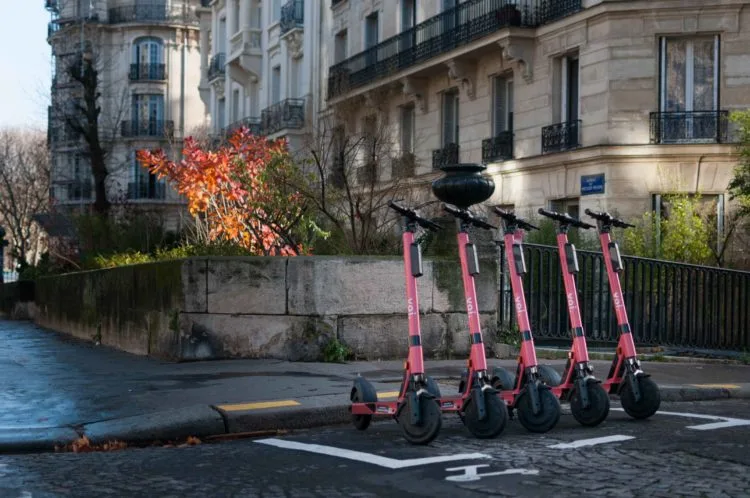The Business Association for the Development and Promotion of Electric Mobility (AEDIVE) raises a complaint based on the biased information being spread about shared electric scooter mobility services in contrast to private scooter usage.
The association also cites the misconduct of city councils that hold public tenders solely for revenue purposes rather than prioritizing service quality.
Drawing a parallel to the representation of the first station of the Via Crucis during Easter, where Pontius Pilate washed his hands, effectively condemning Jesus to death with that gesture, AEDIVE compares this to what the Mayor of Paris, Anne Hidalgo, has done with shared electric scooter services in the City of Light.
According to AEDIVE, she is washing her hands and allowing less than 10% of the 1.3 million citizens called to vote (mostly residents in metropolitan areas who do not use the service) to decide its continuity.
Meanwhile, the citizens from the suburbs, representing 75% of non-tourist electric scooter users, have not had the opportunity to have a say.
Interestingly, the vote was solely directed at shared mobility services and not private scooter usage, which is nonsensical considering that the former maintains scooters in optimal condition through regular inspections.
Shared mobility services also have online tools for efficient and controlled vehicle management, including speed control based on pedestrian volume, guaranteeing user and environmental safety, which private usage lacks.
Safety on the road has been another argument used to demonize these services to.
However, the accident statistics used fail to consider that the vast majority of accidents were caused by private vehicles, and no fatalities resulted from shared mobility units.
The case of Paris is just one more example of many public administrations that seem not to grasp that well-managed shared mobility models add value to urban mobility.
It offers increased transportation options in cities, promotes the use of public transport, and strengthens the commitment to reduce emissions and traffic congestion, according to AEDIVE.
Unfortunately, many city councils treat shared electric scooters as a revenue source that should not cause inconvenience rather than viewing them as a sustainable mobility solution that improves the lives of many citizens in their daily urban commutes.
Some Spanish municipalities have chosen, despite warnings from AEDIVE, to publish tenders based on auctions of scooter lots, treating shared mobility as a mere competition where the highest bidder wins, rather than focusing on service quality.
Other administrations have prioritized revenue generation over license fees, even accepting unreasonably low prices in public tenders. This led to inadequate service provision and disastrous outcomes, where service operators accepted impossible pricing.
Subsequently, these companies had to abandon the service or double the cost, contravening the terms established in the tender’s guidelines with the municipality’s acquiescence.
On the other hand, some municipalities, like Sevilla, have done their homework. They have engaged in serious and committed discussions with service providers, ensuring quality, service, and safety for users and pedestrians.
These cities have provided their citizens with an additional model of sustainable mobility that has been successful not only in the capital but also in various cities both within and outside Spain.
AEDIVE emphasizes that the issue of shared mobility with scooters should not be left to a popular referendum.
It is a responsibility inherent to each city council to propose efficient solutions for sustainable mobility, allowing citizens the freedom to choose the option that best suits their needs at any given moment while ensuring service safety.







